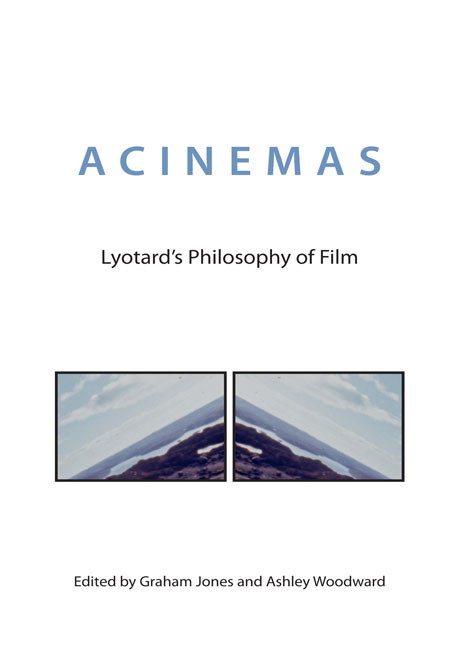1 - Setting the Scene
from I - Openings
Published online by Cambridge University Press: 23 June 2018
Summary
I adore films, and just about any kind of films.
Jean-François Lyotard (1985)We are pleased to present here a collection of resources for working on Lyotard and film. Jean-François Lyotard was the most significant aesthetician and philosopher of art of the poststructuralist generation. As Susana Viegas and James Williams point out in the next chapter, while his explicit contributions to film-philosophy are small in comparison to Gilles Deleuze's magisterial two-volume study, they nevertheless take on greater significance when understood in the context of a much vaster and wider-ranging meditation on the arts available in his other writings. In French, Lyotard's contributions to film have been explored in Jean-Michel Durafour's Jean-François Lyotard: questions au cinéma (2009), the most significant study to have appeared so far. We are pleased to present a translation of this most important author's work as an introduction to the themes of this volume. In addition, Lyotard's approach to cinema is distinguished by his own practical experiments with the medium, largely unknown outside of France. Durafour introduces this dimension of Lyotard's work, and it is further explained here (in Appendix 1) by those most qualified to do so: Claudine Eizykman and Guy Fihman, two filmmakers with whom Lyotard worked.
Lyotard has already received some significant interest in Anglophone scholarship for his work on film, but so far this has been restricted in two ways: it has almost exclusively considered only two of his four essays on film (the two previously available in English translation), and it has generally proposed the significance of his work only for limited areas: experimental film in particular, but also comedy (Trahair 2005; 2008), spectacle (Knox 2013) and horror (Mee 2016). This volume makes available for the first time the full range of Lyotard's main writings on film to Anglophone scholars. It also presents a collection of essays which explore the potential of these writings for a deep and broad impact on the philosophy and theory of film.
- Type
- Chapter
- Information
- AcinemasLyotard's Philosophy of Film, pp. 3 - 9Publisher: Edinburgh University PressPrint publication year: 2017

